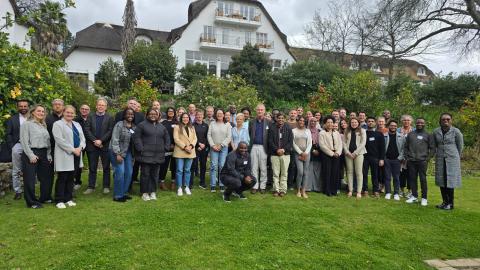
TB harnesses part of immune defence system to cause infection
Scientists from the IDM have contributed to an international study that sheds new light on why humans and animals are so susceptible to contracting TB.
Read more

BALANCE team collaborates on World Diabetes Day outreach
The Khayelitsha Site B CHC Dietetics department partnered with CIDRI-Africa to host a World Diabetes Day awareness event.
Read more

CIDRI-Africa welcomes new investigators at 8th Annual Scientific Meeting
The Centre for Infectious Diseases Research in Africa welcomed three new Contributing Investigators at its 8th Annual Scientific Meeting.
Read more
Notices
No upcoming notices. Please try again later.




